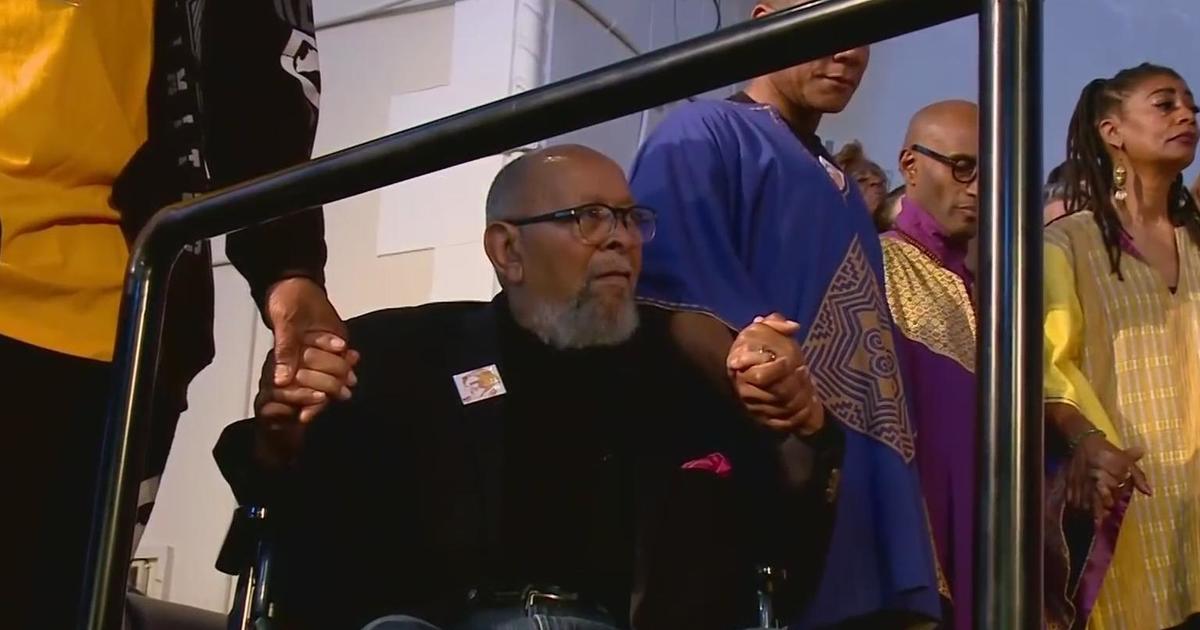In Depth: SF Bicycle Coalition Looks To Improve On City's Bike Usage
SAN FRANCISCO (KCBS)— State law says that bicycles and vehicles are subject to the same laws on the road, but it's clear there are some troubles sharing.
Leah Shahum, executive director of the San Francisco Bicycle Coalition, said the good news is that roads are getting safer, but adds that as more bicyclists take to the streets that means there is more that we can all do to know our rights and responsibilities.
SF's Bicycle Coalition was founded in 1971 and is one of the largest in the nation with 12,000 members. Some of their recent accomplishments include the passage of workplace bicycle access legislation in San Francisco, the passage of Proposition B which provides funds for street work, and the expansion of the Sunday Streets closures as well as the pilot program for bikes on BART.
One of the more ambitious goals of the coalition as part of their five-year strategic plan includes getting half of the city's population on a bicycle at least some of the time.
The bike coalition urban biking workshops are free and teach over 5,000 people a year. Shahum said they are available in Chinese languages, Spanish and even for seniors only.
Shahum has been a the helm of the coalition since 2002 and had previously served on the SF Municipal Transportation Agency's board of directors as well as the Golden Gate Bridge Highway and Transportation District.
"You want to make sure you follow the rules of the road," Shahum said. She explained that the most important thing is for everyone to "be predictable" when they're out on the road. Whether you're walking, biking or driving she said you should be signaling your actions.
"Whether you're biking or driving, you have to give pedestrians the right-of-way," she reminded. The bike coalition has a list of 9 Rules of the Road that they share in classes to anyone who wants to get acquainted with biker's rights or even for drivers who may want to integrate more smoothly with those they share the road with.
One of those rules is, "Take the lane" it's okay to get in front of a car. State law also says even if there is a designated bike lane that you can legally go into regular traffic lanes. There might be something obstructing the bike lane and a cyclist may need to abruptly pull out into a traffic lane.
"It is proven that the bike lanes make the street safer, which is great. For the driver it's great because it can really help them where to be looking," she said. "What we're seeing in San Francisco and across the country when we create a more designated space that more people bicycle."
KCBS In Depth: Issues With Bicycles As Transportation
Shahum explained that families, elderly riders, people new to bicycling and not as skilled riders become more comfortable and are more likely to ride and that the number of collisions goes down.
But with a city as densely populated as San Francisco and with vehicles, Muni buses and pedestrians is there enough room to designate any more bike space?
"There's some give and take on our streets and there's change." But it's not designated bike space on every street that the coalition is asking for. Shahum explained that what they need is a clear network of streets that connect to each other, obviously some work better than others in this area.
The big 'if', holding many back from getting on their bike, according to Shahum is having a safe place to ride.
When it comes to obeying the lights and road's stop signs, Shahum said violators come in all shapes and sizes and are on all types of vehicles and that when a bike rider doesn't comply with the law it's more visible and it give the rest of the bicyclists a bad name.
Shahum noted that the monthly Critical Mass event where bicyclists take to the streets during rush hour on Friday is not affiliated with the SF Bicycle Coalition.
Right now the city is only spending less than half of one percent of its entire transportation capital budget on bicycling according to Shahum. "It's a pretty dismal number," she said. She said she hopes to see that number increase to 10 to 15 percent in the future. "We just want to make sure that the infrastructure is there so that people can ride when they want to."
Lastly, Shahum said she thinks San Francisco's pilot bike-share program isn't going to be robust enough with only 700 bikes. She would like to see that figure at 3,000 bikes in San Francisco alone in order for the program to succeed.
(Copyright 2013 by CBS San Francisco. All Rights Reserved. This material may not be published, broadcast, rewritten, or redistributed.)



